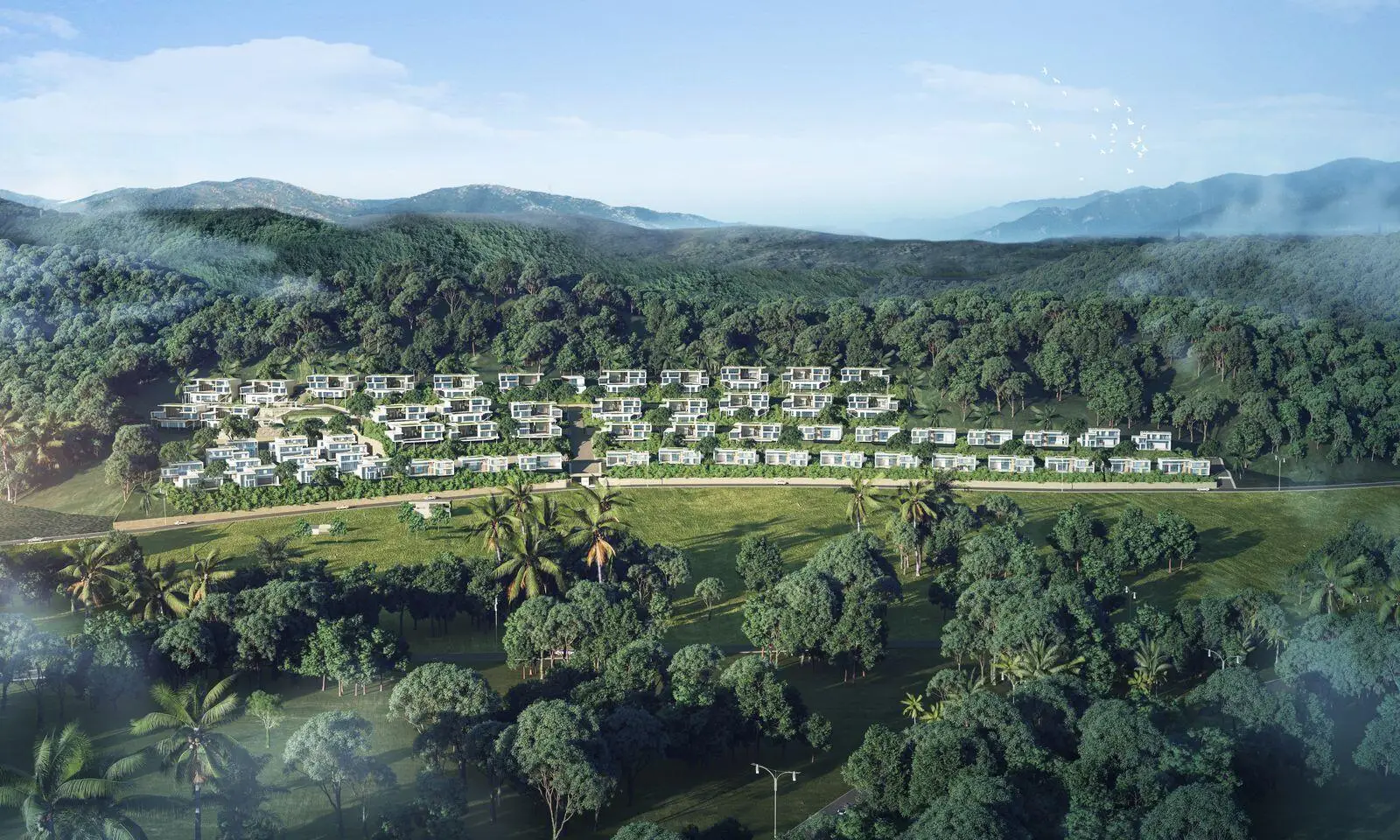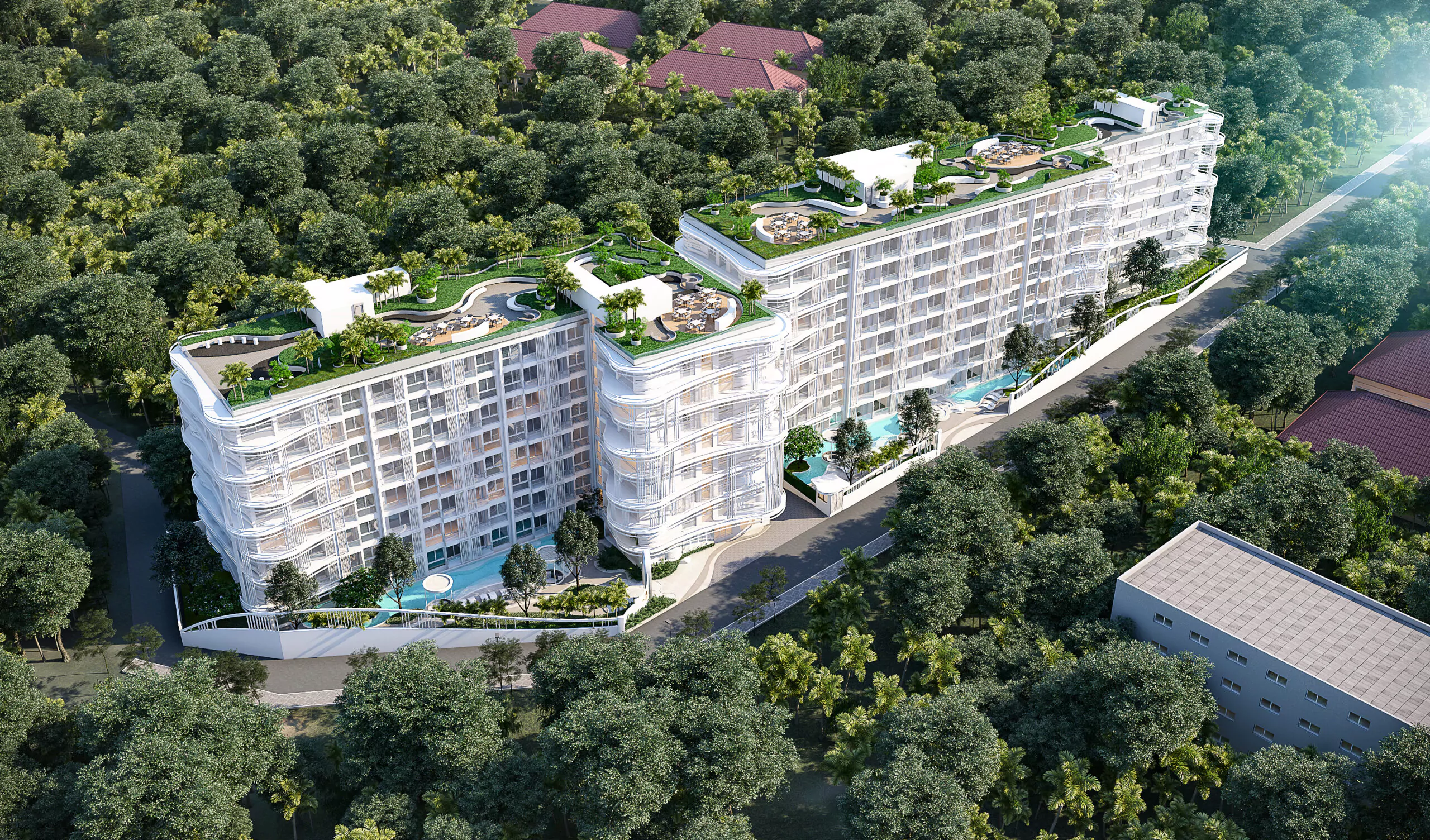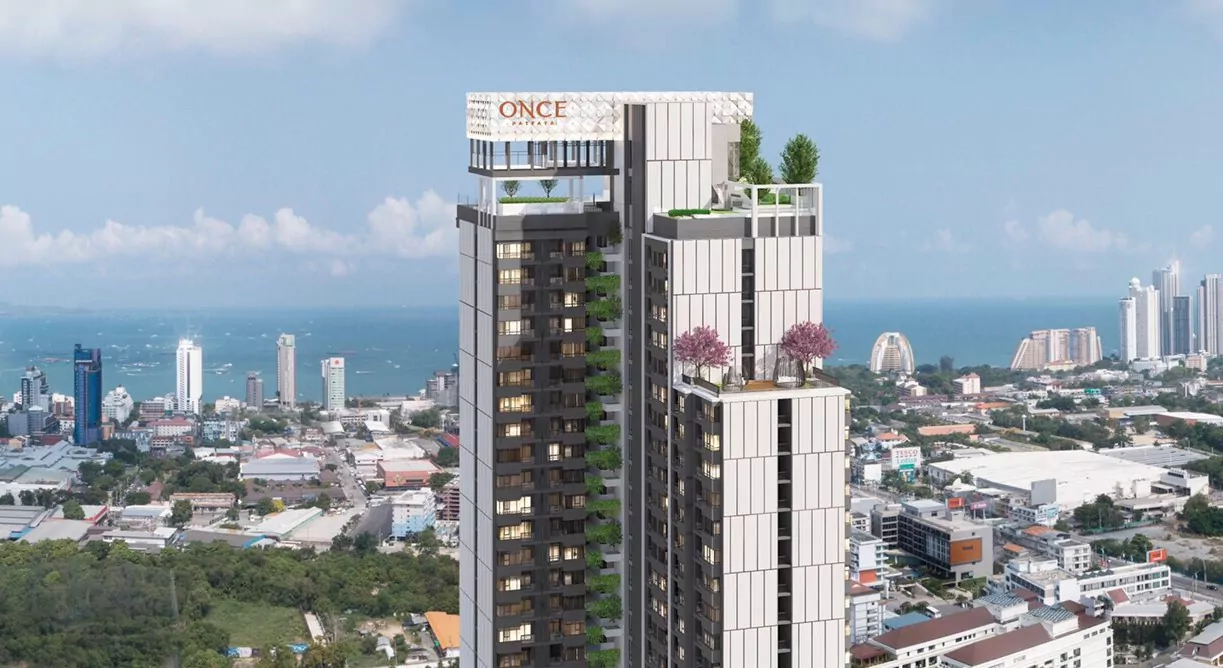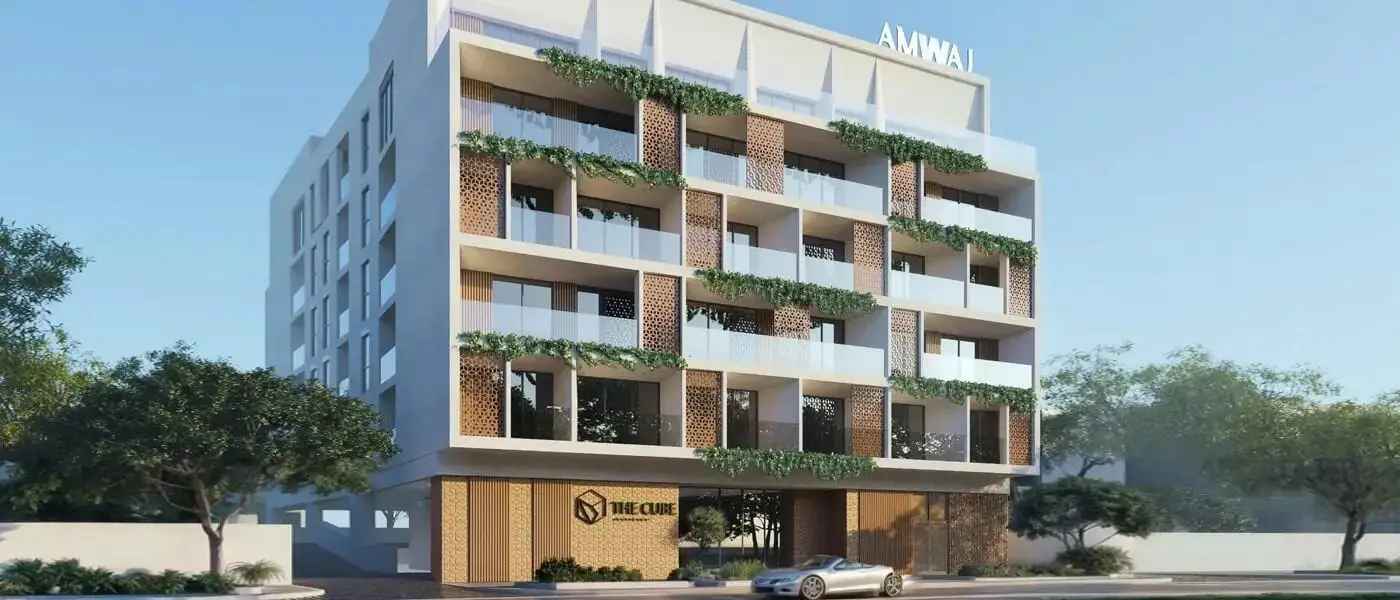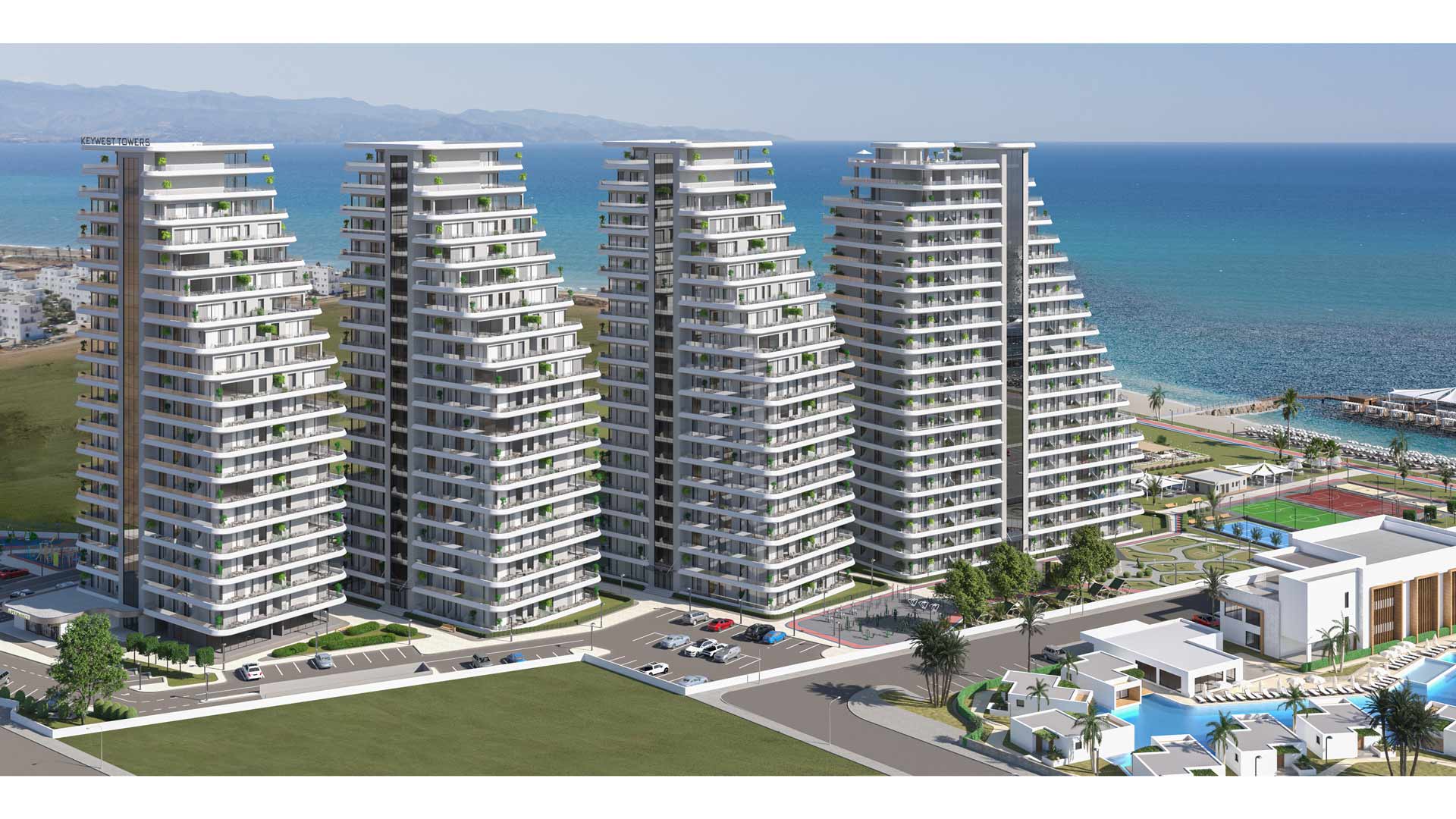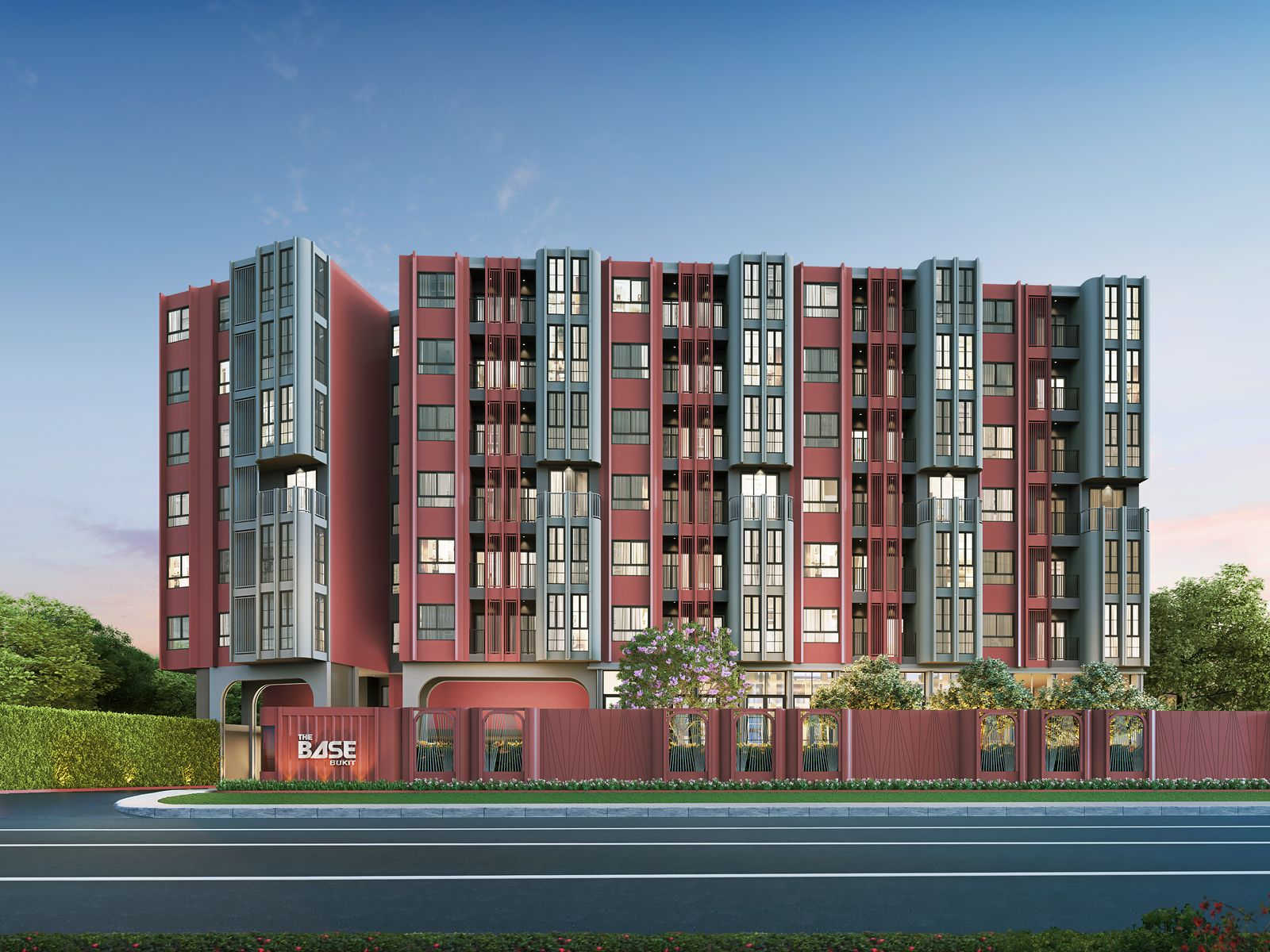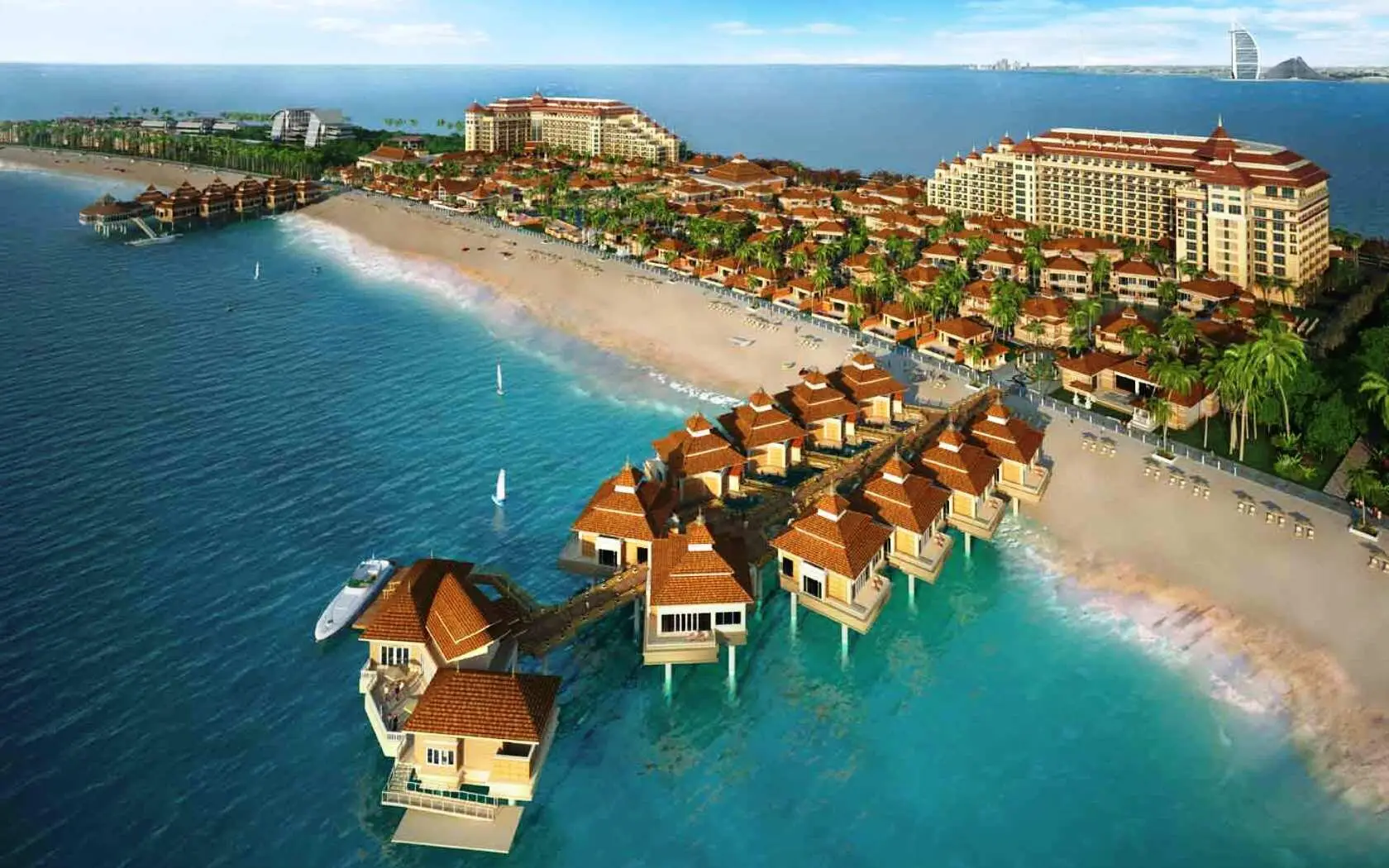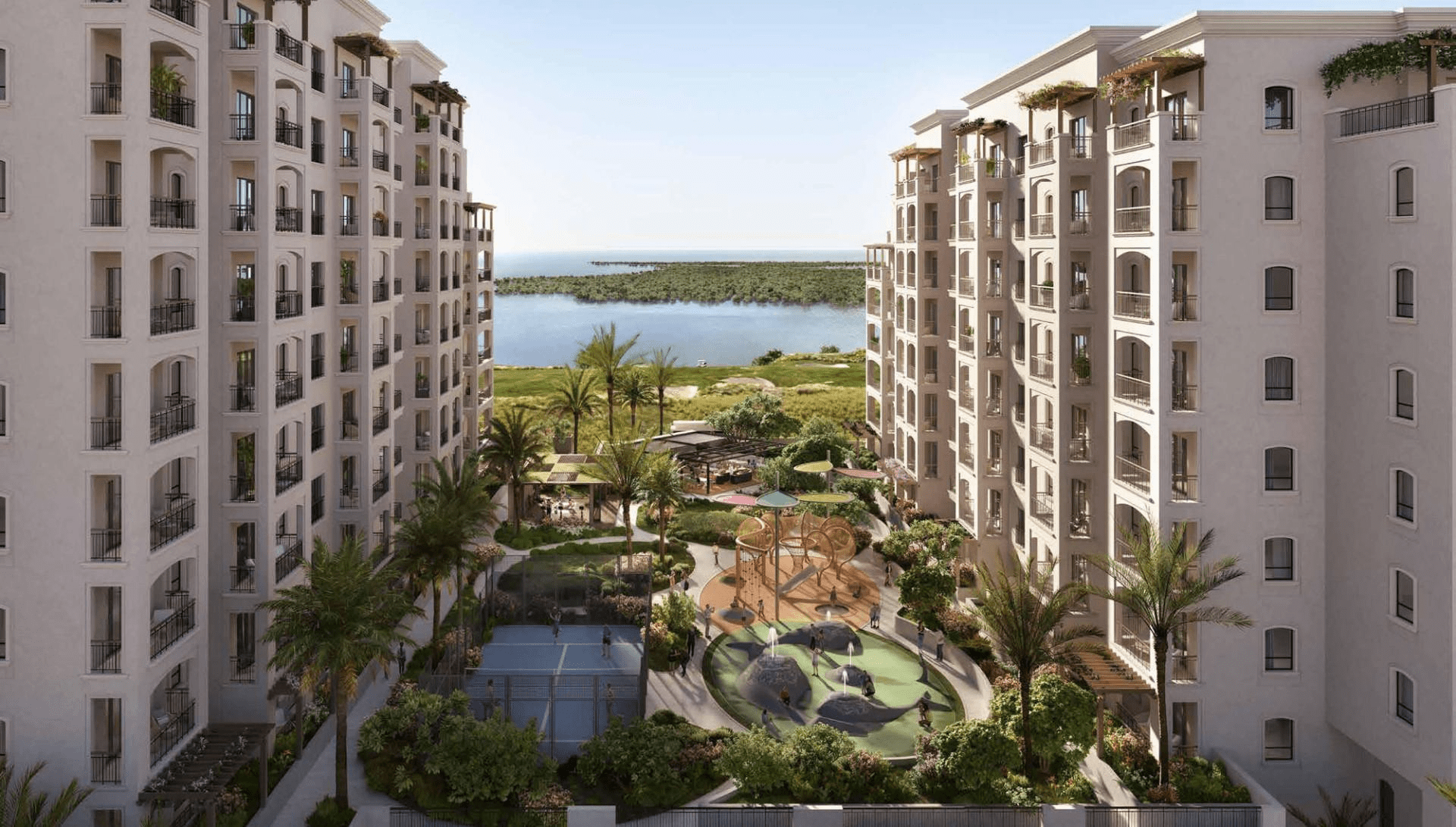
How to buy a house by the sea in Thailand and what to consider


Real Estate Specialist
Imagine sitting on the terrace of your new home by the sea in Thailand, basking in the sun and enjoying the view of the vast blue waters. Sounds tempting, doesn't it?
Buying real estate by the sea in this amazing country attracts more and more foreigners. Stunning beaches, warm climate and affordable prices are waiting for you here. In recent years, interest in the market real estate in Thailand has increased significantly, and many people are striving to make this dream a reality. But what do you need to consider before deciding to take such a step? Let's get to the bottom of it!
- Attractive climate and nature.
- Developed infrastructure and amenities.
- Perspectives on the rental business.
- Popular regions for purchase.
- Legal and financial aspects.
1. Why buy real estate by the sea in Thailand?
If you're still in doubt whether you should buy a house by the sea in Thailand, let's break down a few key reasons that may influence your decision.
Attractive climate and nature
First of all, the climate. Thailand has a tropical climate that is warm all year round. I remember the first time I was in Phuket in January. While my friends from Scandinavian countries were freezing in the snow, I was enjoying the 30-degree heat and clear water. The endless white sand beaches and crystal clear sea are not just an Instagram picture, but a reality that awaits you. You can swim almost all year round, and it's a great opportunity for outdoor activities and relaxation.
Developed infrastructure and amenities
Secondly, infrastructure. Many resort areas in Thailand offer well-developed infrastructure. Imagine having international schools, restaurants with a variety of cuisine, stores and medical facilities at your fingertips. For example, in Pattaya you will find everything you need for a comfortable life. I remember walking around the evening market, sampling the local delicacies and chatting with the locals. It makes you feel like you are not just a tourist, but part of local life.
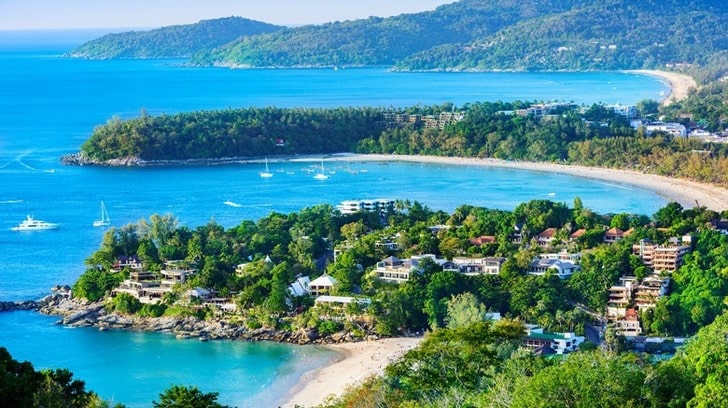
Prospects for the rental business
Finally, don't forget about the prospects of the rental business. If you are considering buying real estate as an investment, it is worth knowing that the demand for rentals by the sea in Thailand is enormous, especially during peak seasons. For example, in January and February, when many Europeans are looking to escape the winter cold, renting can generate significant income. I even know a few people who rent out their apartments through platforms like Airbnb and make a steady income. This can be a great way to not only cover the costs of maintaining a property, but also to make money.
2. Which regions to choose for buying real estate by the sea?
Now that you understand why you should consider buying a house by the sea in Thailand, let's discuss which regions are the most attractive for investment.
Phuket
Let's start with Phuket. This is one of the most famous and visited islands in Thailand. Here you will find many luxury homes located right on the coast. I have often heard people talk about Phuket as a "paradise corner". And these are not just words: crystal clear beaches, luxury hotels and developed infrastructure make it an ideal place to live and relax. In addition, Phuket offers excellent opportunities for real estate investment, as the demand for rentals here is always high.
Pattaya
Next in line is Pattaya. This resort has become a real magnet for tourists and foreign buyers. Here you will find a variety of real estate options at affordable prices. Pattaya attracts not only its beaches, but also an active nightlife. I remember walking down Walking Street one evening and being amazed by the atmosphere of fun and joy. If you want to have a house that can be easily rented out, Pattaya will be a great choice.
Ko Samui
Let's not forget about Ko Samui. This island is known for its secluded atmosphere and beautiful beaches. If you are looking for a quieter place to live, Ko Samui is a great option. Here you will find luxury homes and villas surrounded by tropical nature. I've always dreamed of waking up to the sound of the waves and enjoying my morning coffee on a terrace overlooking the sea. Ko Samui offers just such an opportunity.
Hua Hin
Another interesting region is Hua Hin. This is a less touristy destination, but it is quickly gaining popularity. Hua Hin is known for its laid-back atmosphere, making it an ideal destination for those who want to escape the hustle and bustle of the big resorts. Here you'll find a variety of chic condos and houses that are suitable for both permanent residences and vacation rentals. I remember walking along the beach in Hua Hin and enjoying the peace and quiet, unlike the more noisy resorts. This place is perfect for families or those looking for coziness and comfort.
Krabi
And finally, it is worth mentioning Krabi. This is the place for those who want to immerse themselves in the exotic and enjoy the natural beauty. Krabi is famous for its stunning scenery, high limestone cliffs and secluded beaches. If you are looking for peace and tranquility, this is the perfect destination for you. I remember going on an island tour once and it was one of the most unforgettable experiences of my life. This place also has potential for the rental business as more and more tourists discover Krabi as an alternative to the more popular resorts.
Now that we've discussed the attractive regions to buy from real estate by the sea in ThailandLet's move on to the next important aspect - the legal issues involved in buying real estate for foreigners. This is an important step that will help you avoid trouble and ensure a safe transaction.
3 Legal aspects of buying real estate in Thailand for foreigners
When it comes to buying real estate in ThailandIt is important to realize that there are certain legal restrictions for foreigners. But don't be intimidated - with the right information and approach, you can successfully realize your dream of a home by the sea.
| Aspect | Description |
|---|---|
| Legislative restrictions | Foreigners cannot own land in Thailand. However, there are ways around this rule: |
| — Land leasing: Long-term lease of land for up to 30 years with an option to renew. This is a common practice that allows you to enjoy the property without legal complications. | |
| Buying through a Thai company | It is possible to register a Thai company to own the land. This process is costly and time consuming, but provides flexibility and control over your property. |
| Buying an apartment | Foreigners can own condominiums as long as no more than 51% of the property in the complex is owned by Thais. This allows real estate investment without violating local laws. |
| Documents for purchase | To close the deal, you will need: |
| - Passport | |
| - Sale and Purchase Agreement | |
| - Tax number | |
| - Bank documents | |
4. 4. Financial aspects and costs of buying a house by the sea
Now let's talk about the financial aspects of buying real estate by the sea. This is important to avoid surprises and to plan your budget properly.
Cost of real estate by the sea
Prices for houses by the sea in Thailand vary depending on the region and type of property. For example, in Phuket you can find apartments priced from 3 million baht (approximately $90,000) and luxury villas can cost from 15 million baht ($450,000) and up. In Pattaya, housing prices are also varied and you can find good deals starting at 2 million baht (about $60,000). I remember looking for different options and was pleasantly surprised to find good properties at affordable prices.
Taxes and duties
Apart from the value of the property itself, you also need to consider taxes and duties. For example, property transfer tax is usually around 2% of the value and stamp duty is around 0.5%. Don't forget about notary fees and other possible expenses as well. I always recommend budgeting a small reserve in case of unexpected expenses to avoid stress. For example, for a 3 million baht apartment, the transfer tax will be around 60,000 baht and stamp duty will be around 15,000 baht.

Additional costs
Once you buy the property, you will also have to factor in additional maintenance and upkeep costs. This can include security, grounds maintenance, utilities and insurance. I myself have noticed that some property owners underestimate these costs, which can lead to unpleasant surprises in the future. Estimated monthly expenses can range from 5,000 to 20,000 baht depending on the level of maintenance and location. It is better to budget in advance and take into account all possible costs to make your life by the sea as comfortable and carefree as possible.
Now that we have discussed the important aspects of buying a property in Thailand, the next topic is how to choose a reliable property developer and real estate agent. This will help you avoid scams and find the perfect home by the sea.
5. How to choose a reliable real estate developer and agent?
Choosing the right property developer and real estate agent is one of the key steps to successfully buying a home in Thailand. You need to be sure that your investment is protected and that you are working with professionals.
Reputation check
The first thing to look at is the reputation of the developer. I always recommend doing a little research: look at reviews on the internet, talk to other buyers who have already bought housing from this developer. For example, if you are considering buying Phuket apartmentsAsk the locals what companies they recommend. I myself spent a lot of time researching reviews and talking to people before making a decision. This gave me confidence that I was working with a reliable company.
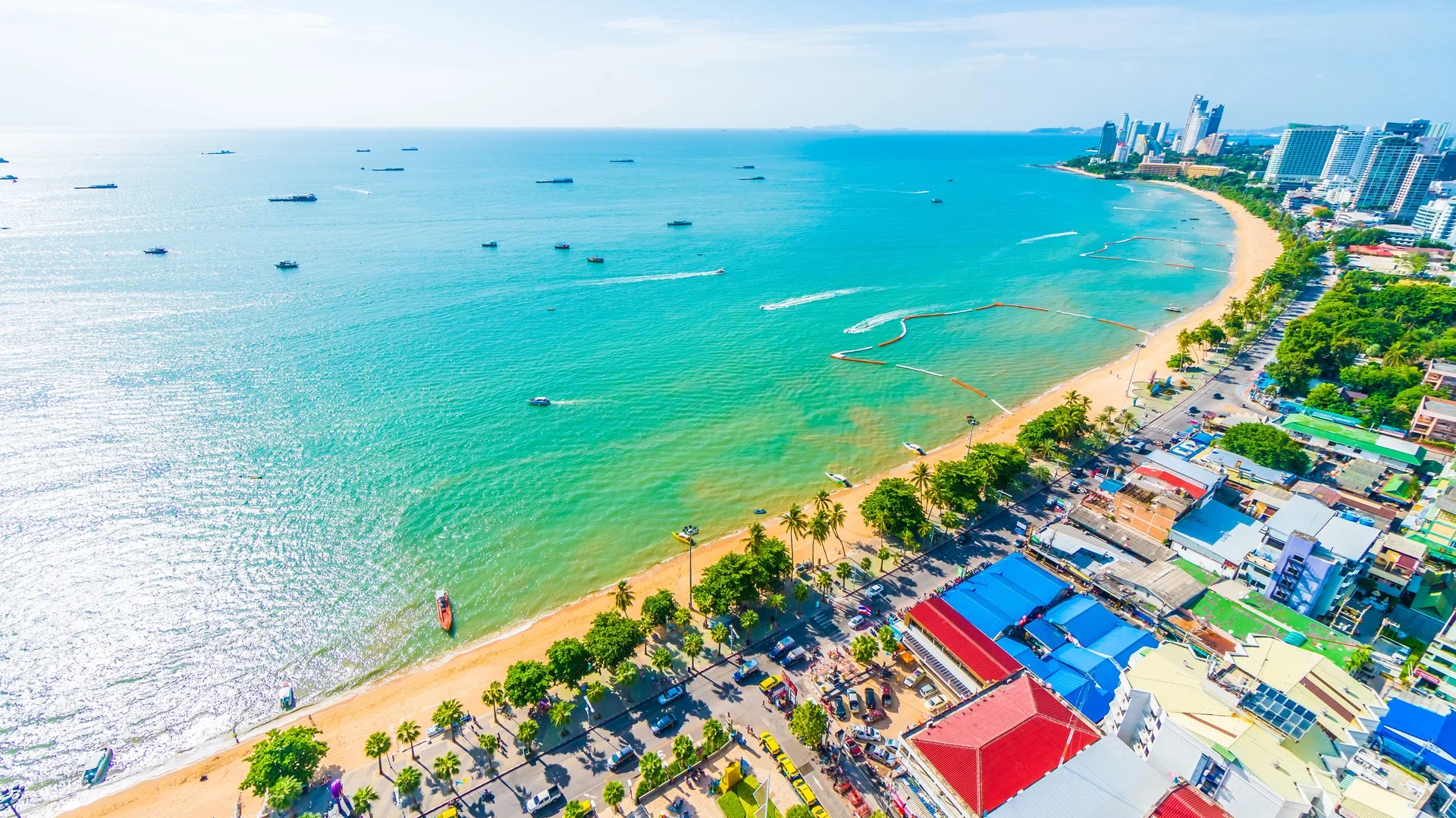
The importance of real estate agency
Working with a licensed real estate agent is also of utmost importance. Find a professional who specializes in selling real estate to foreigners. Such an agent will be able to explain all the legal nuances and provide you with up-to-date information about the market. I remember how my agent helped me sort out the paperwork and taxation, which made the process much easier. It will also help you avoid fraud, which unfortunately is sometimes found in the market.
Risks when buying real estate from private individuals
If you are considering buying real estate from individuals, be especially careful. Make sure the seller has all the necessary documents and the right to sell. I have heard stories of buyers who have run into problems due to lack of document verification. It is always better to ask for all the necessary papers in advance and consult a lawyer if necessary. This will help avoid unnecessary problems and keep you safe.
6. Features of living by the sea in Thailand
Now let's talk about what it's like to live by the sea in Thailand. It is not only beautiful scenery and warm sea, but also its own peculiarities, which are worth considering.
Climate and weather conditions
The climate in coastal zones can have its own nuances. For example, during the rainy season, which lasts from May to October, there can be heavy rains and monsoons. I experienced this myself when I first traveled to Hua Hin in July. Despite the rain, I enjoyed the tropical nature and freshness. But it's worth remembering that it can also affect the condition of your accommodation - the humidity can cause mold and corrosion problems, so regular property maintenance is a must.
Pros and cons of living by the sea
Life at the of the sea has its pros and cons. On the one hand, you enjoy the proximity to the beach and the opportunity to engage in water sports such as surfing or diving. On the other hand, you will have to pay more attention to home maintenance because of the exposure to salt air and moisture. I remember having to clean sand and debris from my terrace after a big storm, but it was worth it when I could then enjoy the sunset with a cup of coffee in hand.
Infrastructure in coastal zones
The infrastructure in coastal areas is usually quite well developed. You can always find stores, restaurants and entertainment venues. For example, in Pattaya you can enjoy a variety of cuisine, from street food to high-end restaurants. I often walked along the waterfront, sampling local dishes and socializing with other tourists. This creates a unique atmosphere and makes you feel part of the local culture.
7. Investments in rental real estate by the sea
Now let's take a look at how investing in rental properties by the sea can be a profitable decision. This is a great way to not only generate income, but also to recoup the costs of maintaining your home.
Prospects for rental income
Buying a property by the sea to rent out is an opportunity to earn a steady income. Many homeowners in Thailand successfully rent out their apartments and villas through platforms like Airbnb. I know people who do this and get an income even higher than they expected. This is especially true during peak seasons when tourists are looking to spend their vacations on the beach.
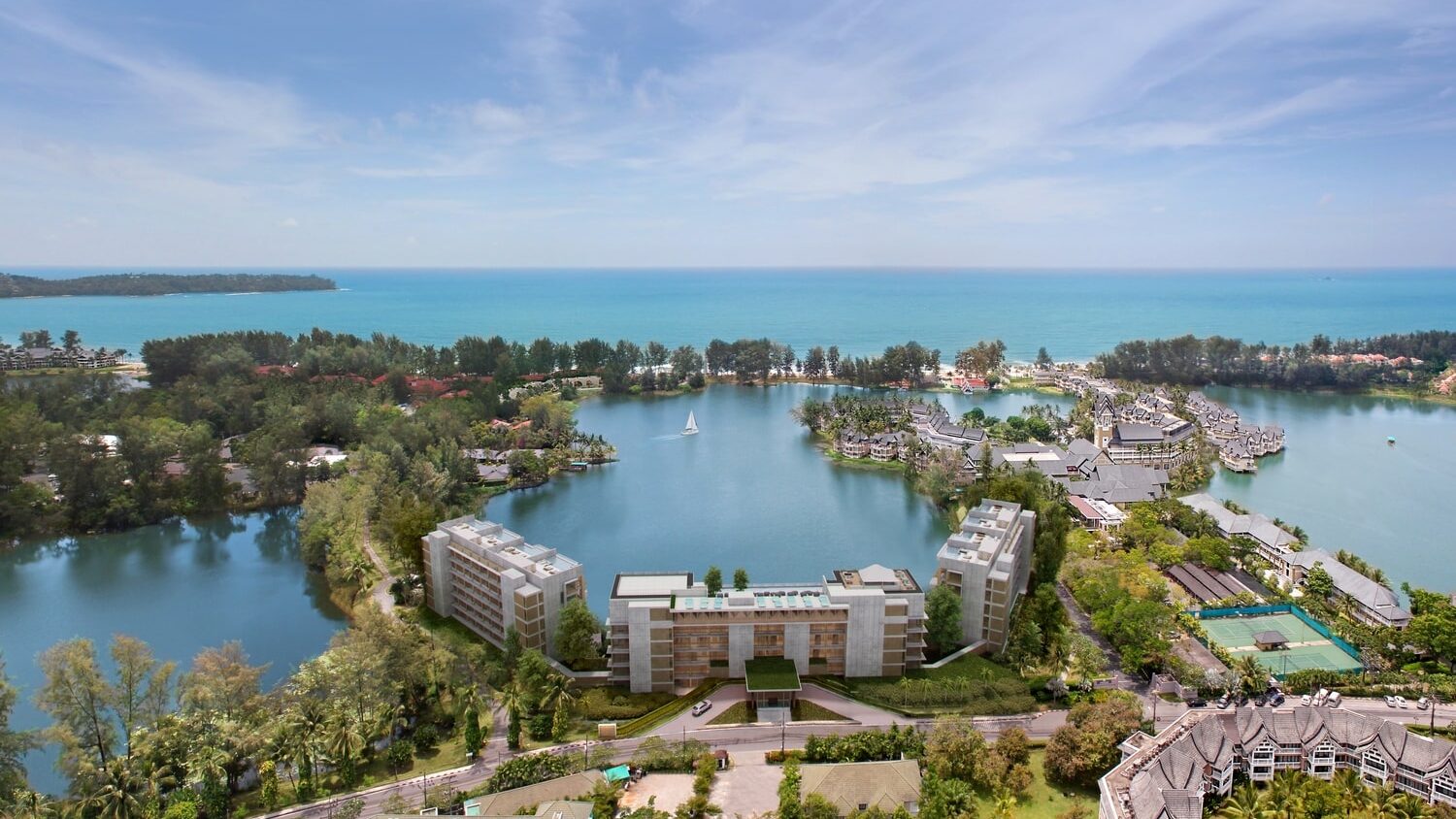
Seasonality and revenues
However, it is worth remembering that rental yields can be seasonal. For example, in the high season, which lasts from November to March, the demand for rent increases significantly and you can set higher prices. In the low season, from May to October, demand may decrease and you will have to adapt to these changes. I myself have noticed how property owners I know have changed their rental strategies at different times of the year to maximize their income.
Legislative aspects of leasing
Don't forget about the legal aspects of renting. Depending on the region, there may be different taxes and fees for foreign owners renting out their property. I recommend consulting a lawyer or real estate agent beforehand to avoid trouble and penalties.
Now that we have discussed all the important aspects of buying and living by the sea in Thailand, let's summarize and draw final conclusions on why it can be a great investment.
Conclusion
As a result, buying a house by the sea in Thailand can be not only the realization of your dream, but also a profitable investment. With a wonderful climate, stunning nature and developing infrastructure, this country offers many opportunities for a comfortable life and a successful rental real estate business.
Buying real estate by the sea in such popular regions as Phuket, Pattaya, Ko Samui, Koh Samui, Hua Hin and Krabi opens the door to an amazing life, full of relaxation and unforgettable experiences. Keep in mind the legal and financial aspects, choose reliable developers and agents and you can avoid many pitfalls.
Before taking this important step, research the market thoroughly, consult with professionals and make a clear plan. This will help you not only enjoy life by the sea, but also make your investment successful and safe.
If you have any questions or would like more information about buying real estate in Thailand, don't hesitate to contact our team of experts. We are here to help you through every step of this exciting process. Contact us by phone or through our website to learn more!
Foreigners can own apartments but not land in Thailand. However, they can rent land for up to 30 years or own a house through a Thai company.
Popular regions for buying homes by the sea include Phuket, Pattaya, Ko Samui, Hua Hin and Krabi. Each region offers unique advantages depending on your buying objectives.
The purchase process includes searching for a property, verifying ownership, entering into a sales contract, payment and registration with the Land Department of Thailand.
Foreign buyers pay property transfer tax (about 2-3%), stamp duty and notary fees. Possession and rental taxes are also possible.
Yes, foreigners can rent out their properties, which is especially popular in tourist areas. It is important to consider tax requirements and rental regulations.
Yes, a lawyer can help with title verification, drafting contracts and conducting the transaction. This is recommended for the safe purchase of real estate in Thailand.
The main restriction is that foreigners cannot own land. However, they can rent land or purchase an apartment in a complex where a minimum of 51% of the property is owned by Thais.
After purchase, there may be property maintenance costs, utilities, insurance and regular maintenance, especially in houses by the sea due to the humid climate.
Can foreigners own property by the sea in Thailand?
Foreigners can own apartments but not land in Thailand. However, they can rent land for up to 30 years or own a house through a Thai company.
What are the best regions in Thailand to buy a house by the sea?
Popular regions for buying homes by the sea include Phuket, Pattaya, Ko Samui, Hua Hin and Krabi. Each region offers unique advantages depending on your buying objectives.
What is the procedure for foreigners to buy real estate in Thailand?
The purchase process includes searching for a property, verifying ownership, entering into a sales contract, payment and registration with the Land Department of Thailand.
What taxes and fees do I have to pay when I buy real estate?
Foreign buyers pay property transfer tax (about 2-3%), stamp duty and notary fees. Possession and rental taxes are also possible.
Is it possible to rent out a property by the sea?
Yes, foreigners can rent out their properties, which is especially popular in tourist areas. It is important to consider tax requirements and rental regulations.
Do I need to hire a lawyer to buy real estate?
Yes, a lawyer can help with title verification, drafting contracts and conducting the transaction. This is recommended for the safe purchase of real estate in Thailand.
Are there restrictions on the purchase of real estate by foreigners?
The main restriction is that foreigners cannot own land. However, they can rent land or purchase an apartment in a complex where a minimum of 51% of the property is owned by Thais.
What additional costs may be incurred after the purchase?
After purchase, there may be property maintenance costs, utilities, insurance and regular maintenance, especially in houses by the sea due to the humid climate.

